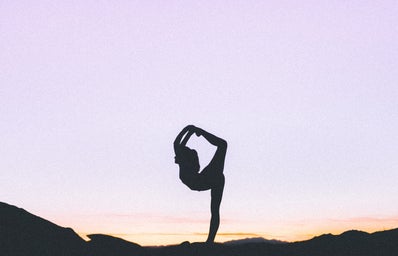Anyone who has read my article about going home knows that I find support and happiness in my hometown community. However, until recently, I had never searched for or gained connections through exercise. Clumsy since birth, I went through school mentally branding myself as unathletic, participating in required gym classes and walking my dog on weekends, but doing little past that to attend to my physical health. When I first entered college, I found myself at an emotional low point, where getting my work done and surviving until the end of the term were my only priorities. After transferring schools, I began to take an interest in exercise, jogging or running on the indoor track, and trying my hand at the stationary bike. After a few months on the bike, I began to realize that I was getting stronger. Feeling the backs of my legs, I marveled at how toned they were, and took pride in being able to take on flights of stairs without fatigue.
After the initial excitement of becoming stronger through indoor cycling, I hit a wall. I felt like I was performing as well as I could without guidance, and I didn’t know where to go next. Fast forward to March of this year, when indoor cycling franchise Cyclebar opened its first New York location in my hometown. Naturally, I was nervous before my first class, having tried another popular cycling studio and absolutely hating it, but I felt that this studio would be different. After completing a few classes, what I found surpassed my wildest expectations: instructors who are warm, friendly, and inclusive; free coffee, granola bars, and bagels available after class; best of all, a community of riders whose names and faces I have come to recognize. Cyclebar goes to great lengths to establish a community within its doors, highlighting riders’ successes, supporting their failures, and making them feel welcome and worthy.
In my Educational Foundations course this week, we have been talking about the sociocultural theory of learning, developed in response to previous theories which failed to account for students’ sense of identity as it relates to learning. According to the sociocultural theory, learning occurs once the student’s identity has come to incorporate their new skill. The student joins a larger community of experts, slowly developing expertise theirself. While the theory made sense on paper, I wasn’t sure how it would play out in life. Is watching and interacting with those more experienced in something really enough to establish a new identity in a learner? The more I thought about it, I found my mind wandering to Cyclebar. In the course of the roughly six months it has been open, the studio has allowed me to see myself as someone athletic. Can I complete a marathon? Hell no; I can’t even run three miles, but my identity has changed so I believe that almost anything is possible. If I dedicated a year or so of my life to training, I could run a marathon. I’ve proven to myself that my body can become stronger with consistent exercise combined with guidance and support, so I no longer have to limit myself based on assumptions that I am unathletic. I have discovered the power of identity in learning, and I invite anyone feeling discouraged about their ability to do something to analyze their view of themselves and to allow it to change.


